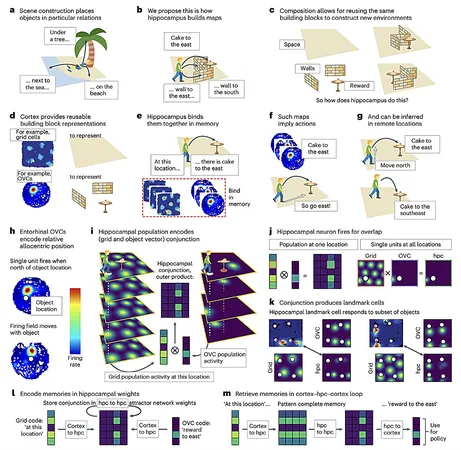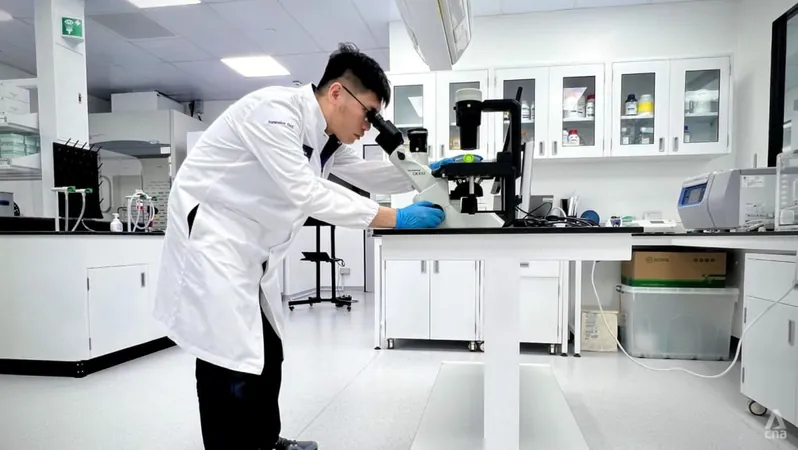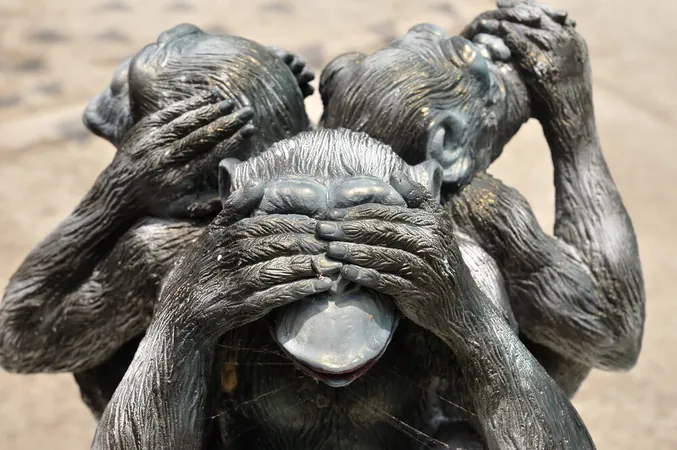
Unraveling the Mysteries of the Hippocampus: How Memory Shapes Our Future Behavior
2025-03-23
Author: Siti
Introduction
Recent groundbreaking research has illuminated the critical role of the hippocampus in shaping our memories and future decisions. The hippocampal formation, comprising the hippocampus and its closely connected neural structures, is integral to essential brain functions such as memory consolidation, decision-making, and spatial navigation—our ability to understand and navigate our environments.
Traditional Understanding vs. New Insights
Traditionally, neuroscience has concentrated on the hippocampus's role in episodic memory—the storage of personal experiences—and navigation. However, new studies reveal that this brain region also engages in a process known as compositional memory, which allows us to deconstruct memories into basic components and recombine them to generate new insights or foresee future events.
Recent Research Studies
A collaborative team of researchers from the University of Oxford and University College London recently conducted a study aimed at elucidating how the hippocampus undergoes memory composition and facilitates hippocampal replay—the reiteration of neural activity associated with specific memories. Their findings, featured in Nature Neuroscience, suggest that the hippocampus plays a pivotal role in influencing our future behavior through interconnected processes.
Mathematical Models and Neuronal Responses
According to co-authors Jacob J. W. Bakermans and Joseph Warren, “The hippocampus is essential for memory, imagination, and constructive reasoning.” They propose that neuronal responses within this brain region can be understood through mathematical models called state spaces, which illustrate the relationships between experiences. By utilizing simulations and neural recordings, the researchers sought to harmonize these theoretical insights.
Strengthening Memory Consolidation
Previous research has established that hippocampal replay can strengthen memory consolidation. This process involves the hippocampal neurons 'replaying' past experiences—particularly during periods of rest or sleep—which aids durability in memory retention.
Exploring Compositional Memory
In their latest investigation, Bakermans, Warren, and their colleagues explored the concept that state spaces in the hippocampus might possess a compositional quality. This means the brain can selectively manipulate and reassemble components of past experiences to imagine or predict various future scenarios.
Optimizing Responses in Novel Environments
The researchers emphasize that if state spaces comprise compositional elements, often referred to as 'primitives,' our hippocampal responses can be interpreted as composite memories that integrate these primitives. This flexibility allows individuals to optimize their responses in novel environments without the need for new learning, effectively deriving behavior from memory compositions alone.
Dynamic Replay Mechanisms
Further, the study proposes that the replay mechanism within the hippocampus fosters the development of these compositional memories actively, contrasting earlier views that regarded it as merely a passive recollection process. This dynamic replay could create a reservoir of adaptable memories capable of being reconstructed to shape future actions.
Impact of Environmental Changes
“By predicting a role for hippocampal replay in the consolidation of compositional memories,” the authors state, “we demonstrate that replay events from newly identified landmarks strengthen and even reshape neural representations in response to environmental changes.” Their findings reveal that when landmarks are altered, replay mechanisms adjust firing patterns to align with the new locale.
Conclusion
This innovative research by Bakermans, Warren, and their collaborators opens a new chapter in understanding how the hippocampus enables us to draw on our past experiences to craft predictions and envision scenarios yet to come. As this body of work fosters further studies into the hippocampus's multifaceted roles, it could lead to a more integrated understanding of memory functioning, paving the way for advancements in behavioral predictions and therapeutic interventions for memory-related disorders.
Stay Tuned!
Stay tuned for more enlightening discoveries in the world of neuroscience!



 Brasil (PT)
Brasil (PT)
 Canada (EN)
Canada (EN)
 Chile (ES)
Chile (ES)
 Česko (CS)
Česko (CS)
 대한민국 (KO)
대한민국 (KO)
 España (ES)
España (ES)
 France (FR)
France (FR)
 Hong Kong (EN)
Hong Kong (EN)
 Italia (IT)
Italia (IT)
 日本 (JA)
日本 (JA)
 Magyarország (HU)
Magyarország (HU)
 Norge (NO)
Norge (NO)
 Polska (PL)
Polska (PL)
 Schweiz (DE)
Schweiz (DE)
 Singapore (EN)
Singapore (EN)
 Sverige (SV)
Sverige (SV)
 Suomi (FI)
Suomi (FI)
 Türkiye (TR)
Türkiye (TR)
 الإمارات العربية المتحدة (AR)
الإمارات العربية المتحدة (AR)